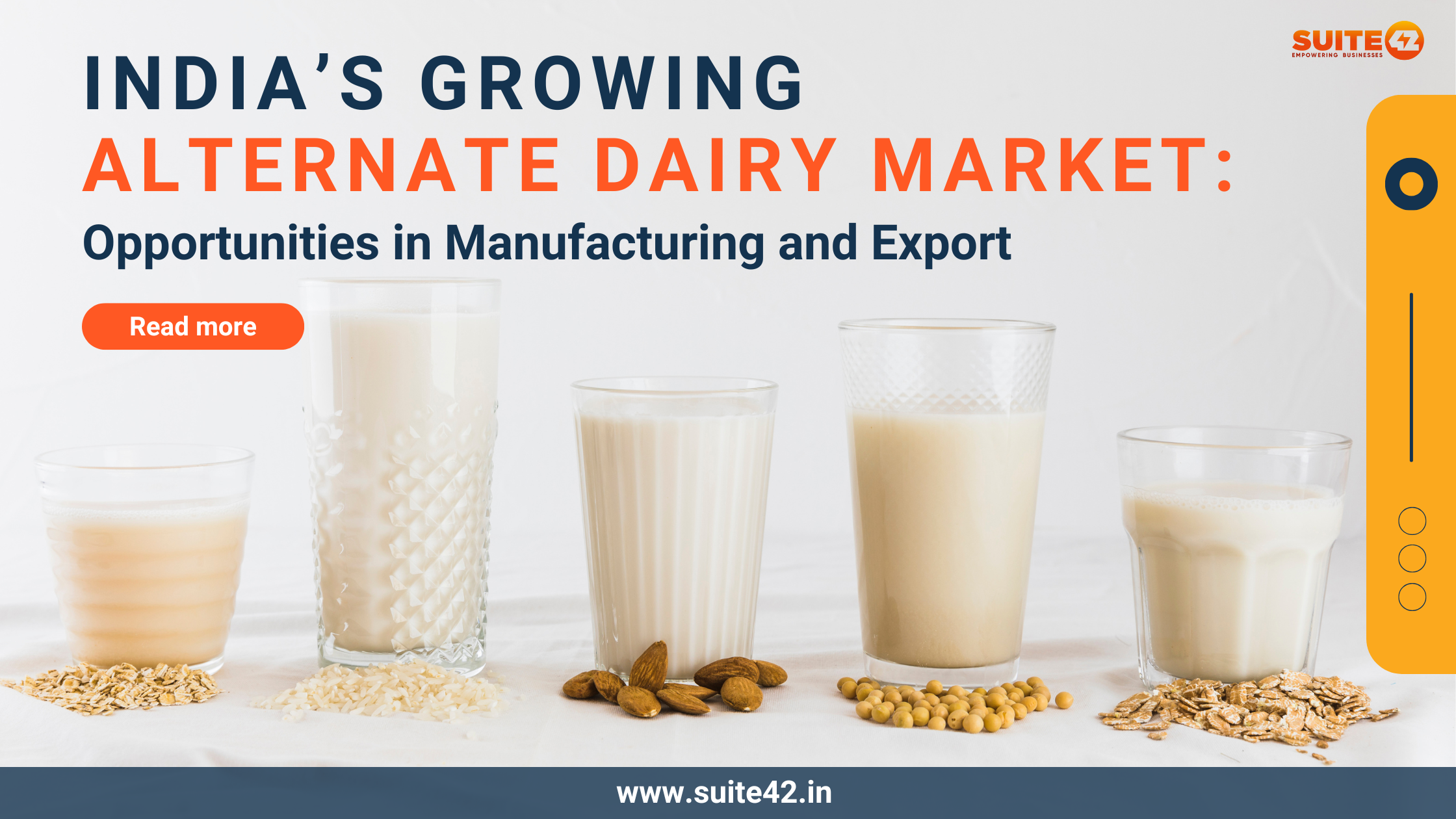
India’s Growing Alternate Dairy Market: Opportunities in Manufacturing and Export
Introduction
Alternate dairy, a term used to describe plant-based substitutes for traditional dairy, is more than a trend—it’s a revolution in the food industry. This category includes products such as almond milk, oat milk, soy yogurt, and vegan cheese, tailored for health-conscious and ethically driven consumers. Increasing awareness about lactose intolerance, dietary preferences, and environmental concerns have catapulted alternate dairy into the global spotlight.
The alternate dairy market is expanding rapidly, with the global industry expected to grow at a CAGR of 10.6% from 2023 to 2030, reaching a value exceeding $40 billion by 2030 (Grand View Research, Fact.MR). India, with its abundant agricultural resources and affordable manufacturing capabilities, stands as a significant player ready to meet this growing demand. As the global need for plant-based dairy escalates, India’s potential for manufacturing and export gains prominence.
What is Alternate Dairy? A New Era in Food Innovation
Alternate dairy offers a sustainable, nutritious, and ethical alternative to traditional dairy products. By leveraging plant-based sources such as oats, almonds, soy, and millets, this category caters to diverse consumer needs. These products align with the principles of sustainability, reducing carbon footprints, and minimizing water usage compared to traditional dairy farming. The rise of advanced food technologies has enabled manufacturers to mimic the taste and texture of conventional dairy products, making them increasingly palatable for mainstream consumers.
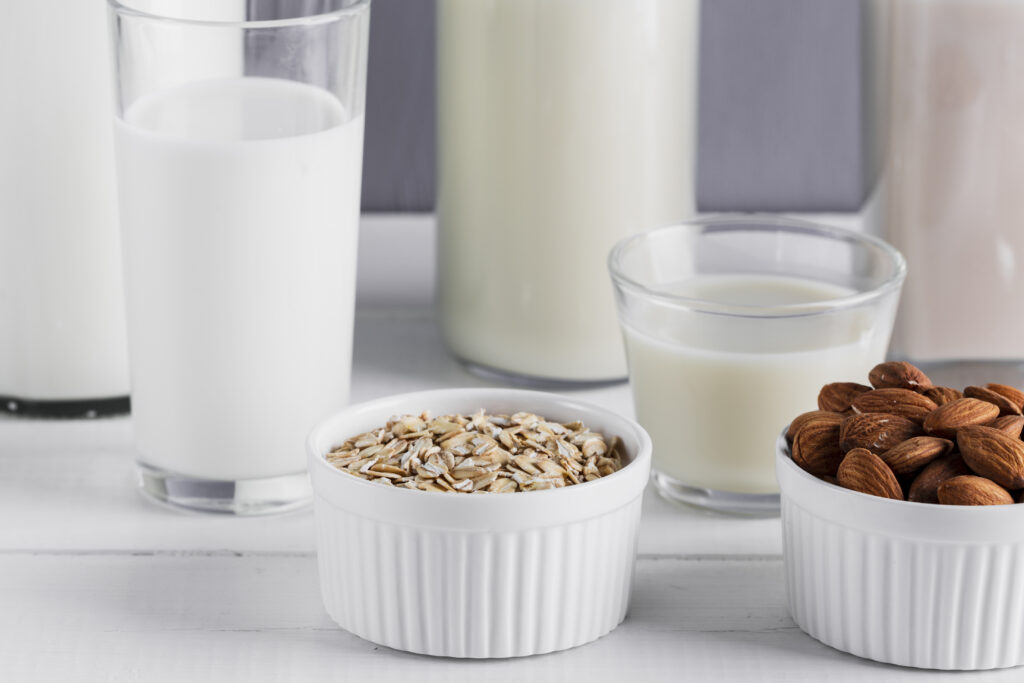
The Global Surge in Demand for Plant-Based Dairy
Global demand for plant-based dairy has grown exponentially, driven by increasing health awareness and environmental consciousness. North America and Europe dominate this market, but Asia is emerging as a key player. In countries like China, sales of plant-based milk have surged, with oat milk alone experiencing a 20% annual growth rate (Fact.MR, Precision Insights). The environmental benefits of vegan milk products resonate strongly with younger consumers. Producing almond milk, for instance, uses less water than cow’s milk, while soy milk production generates lower greenhouse gas emissions. As consumer priorities shift towards sustainability, this market is expected to flourish globally.
How India Fits into the Global Alternate Dairy Market
India, with its vast agricultural resources and robust food processing industry, has become an essential hub for alternate dairy export opportunities. The country’s ability to produce cost-effective plant-based products positions it as a competitive player on the global stage. Domestically, increasing consumer demand for healthier options further boosts the category.With its strategic geographical location, India is well-placed to cater to markets in Europe, the Middle East, and Southeast Asia, offering a range of dairy-free milk market products.
An article that might interest you: Unlock the Potential of Superfoods with Contract Manufacturing.
Global and Domestic Market Overview
Key International Markets Dominating the Alternate Dairy Space
The global alternate dairy market is spearheaded by regions like North America and Europe. North America, valued at over $3 billion annually, is at the forefront, driven by a combination of high disposable income and a strong focus on health-conscious diets (Grand View Research, Fact.MR). The U.S. market has witnessed widespread adoption of plant-based dairy products, with oat milk and almond milk leading the charge. Companies like Oatly and Califia Farms dominate retail shelves, pushing innovation through flavors and fortified variants.
European nations such as Germany and the Netherlands are similarly robust markets, characterized by their progressive stance on sustainability and innovation. Germany, in particular, is a hub for vegan milk export, with brands focusing on reducing carbon footprints and aligning with stringent EU quality standards.
Asia, while traditionally a dairy-centric market, is rapidly embracing plant-based alternatives. China and Japan are at the helm, driven by increasing lactose intolerance rates and government-backed campaigns promoting sustainable diets. China’s plant-based milk market alone is projected to grow at a CAGR of over 15% in the coming years (Fact.MR).
India’s Rise as a Preferred Destination for Alternate Dairy Production
India’s ascent in the alternate dairy market stems from its unique confluence of affordability, skill, and resource availability. The country’s manufacturing capabilities allow for large-scale production without compromising quality. Furthermore, its established supply chains and export-ready infrastructure enhance its attractiveness to international investors.
India’s competitive edge is augmented by its diverse agricultural base, which facilitates the cost-effective production of ingredients such as almonds, oats, and millets. The integration of cutting-edge technologies, such as high-pressure processing and enzymatic modifications, further boosts India’s potential as a global manufacturing hub for dairy-free milk market products.
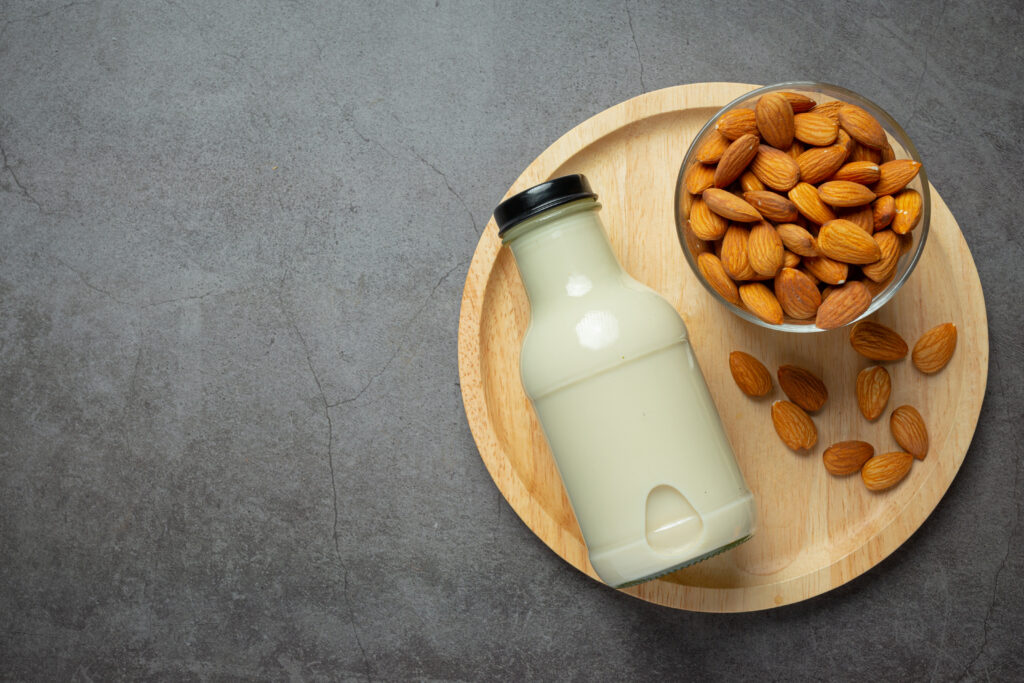
Emerging Consumer Trends in the Indian Dairy-Free Milk Market
Indian consumers are increasingly opting for plant-based dairy options, driven by rising awareness about lactose intolerance, ethical food choices, and health benefits. Millet-based dairy products are especially gaining traction due to their nutritional richness and alignment with traditional Indian diets. These products, fortified with vitamins and minerals, cater to both urban health-conscious populations and export markets.
India’s Manufacturing Potential
Harnessing Agricultural Diversity: Millets, Oats, Almonds, and Beyond
India’s agricultural abundance provides a strong backbone for the alternate dairy market. Staples like millets and oats, once considered niche, are now mainstream ingredients in plant-based dairy. Almonds, primarily grown in states like Jammu and Kashmir, add premium value to vegan milk products targeted at global markets. This diversity allows manufacturers to innovate and cater to a wide range of consumer preferences, from nutrient-rich fortified milk to indulgent, flavour-enhanced products.
The Role of the Indian Food Processing Industry in Alternate Dairy Growth
India’s food processing industry acts as a crucial enabler for new product development in the plant-based sector. State-of-the-art facilities equipped with aseptic packaging and advanced homogenization techniques ensure that products meet international quality standards. Additionally, government-backed initiatives such as the Mega Food Parks Scheme bolster the industry’s ability to deliver high-quality outputs at scale (Fact.MR).
Government Policies Fuelling Innovation and Exports in Plant-Based Dairy
Policies like the Production Linked Incentive (PLI) scheme for food processing are game changers for India’s alternate dairy export opportunities. These initiatives incentivize manufacturers to adopt global best practices, scale production, and explore new markets. Furthermore, the government’s focus on promoting millets under the International Year of Millets 2023 has positioned these grains as cornerstones for export-oriented products (Fact.MR, Precision Insights).
An article that might interest you: Unlocking Innovation: How Suite42’s R&D Expertise Can Help You Develop Winning Food Products
Export Opportunities
India’s Strategic Advantages in Exporting Vegan Milk Products
India’s geographical proximity to markets in Asia, Europe, and the Middle East offers logistical advantages for vegan milk export. Combined with competitive labor costs and a strong agricultural base, the country can deliver high-quality, cost-effective products. Indian manufacturers also benefit from bilateral trade agreements, which provide preferential access to key markets.
Success Stories of Indian Brands in the Global Alternate Dairy Market
Indian brands like Epigamia and Raw Pressery exemplify the potential of the dairy-free milk market. Epigamia’s coconut yogurt and almond milk have found a loyal audience domestically and internationally. Similarly, Raw Pressery’s plant-based beverages highlight India’s capacity for innovation and quality. These brands have successfully navigated challenges such as ingredient sourcing and international certification, setting benchmarks for aspiring entrepreneurs.
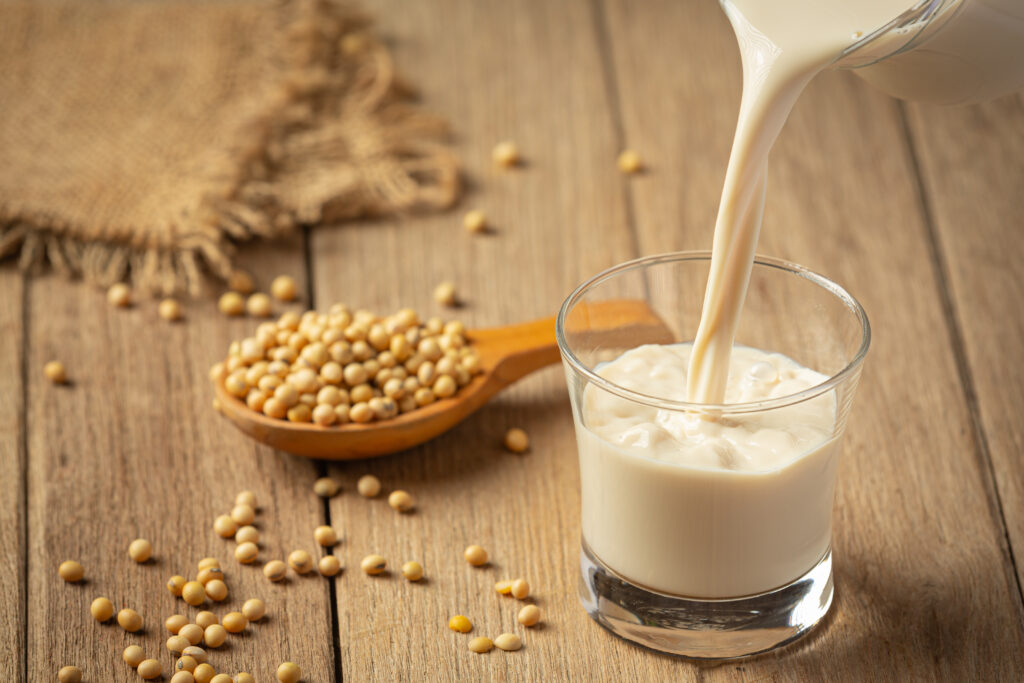
Tapping Untapped Opportunities in Asia, Europe, and the Middle East
Emerging markets like Southeast Asia offer substantial opportunities due to their growing middle class and increasing health consciousness. European markets, despite being saturated, still present niches for specialized products like fortified vegan milk and premium almond-based beverages. The Middle East, with its rising demand for halal-certified dairy-free options, is another promising region for Indian exporters (Grand View Research) and Opportunities for Entrepreneurs.
Challenges and Opportunities for Entrepreneurs
Understanding Market Gaps in India’s Alternate Dairy Segment
While the plant-based dairy sector is growing, gaps remain in product affordability, consumer education, and distribution networks. Entrepreneurs can address these issues by leveraging local resources, investing in consumer awareness campaigns, and adopting innovative distribution strategies.
Overcoming Barriers: Sourcing, Manufacturing, and Certification
Reliable sourcing of high-quality raw materials like almonds and oats is a critical challenge. Entrepreneurs must also navigate complex certification processes, particularly for export markets. Achieving certifications like USDA Organic or Non-GMO Verified can enhance product appeal in international markets.
Leveraging Technology and Innovation for Market Leadership
Technology plays a pivotal role in overcoming industry challenges. Biofortification techniques can enhance the nutritional profile of plant-based dairy, while AI-driven supply chain management ensures efficiency and cost-effectiveness. By investing in innovation, entrepreneurs can achieve differentiation in a crowded market.
Why Suite42 is Your Ideal Partner for Alternate Dairy Ventures
Suite42 combines expertise in new product development, contract manufacturing, and supply chain solutions to help businesses succeed in the alternate dairy market. Whether it’s developing millet and oat milk products or navigating the complexities of global exports, Suite42 offers end-to-end solutions tailored to your needs. By partnering with Suite42, you gain access to cutting-edge technology and industry insights, making your journey in the plant-based dairy sector seamless and profitable.

Conclusion
The alternate dairy market represents a golden opportunity for businesses looking to capitalize on shifting consumer preferences. India’s unique combination of agricultural diversity, manufacturing strength, and export potential makes it an ideal location for investment. Entrepreneurs have a chance to ride this wave of growth by partnering with industry leaders like Suite42. Together, let’s innovate and shape the future of plant-based dairy, transforming challenges into opportunities.




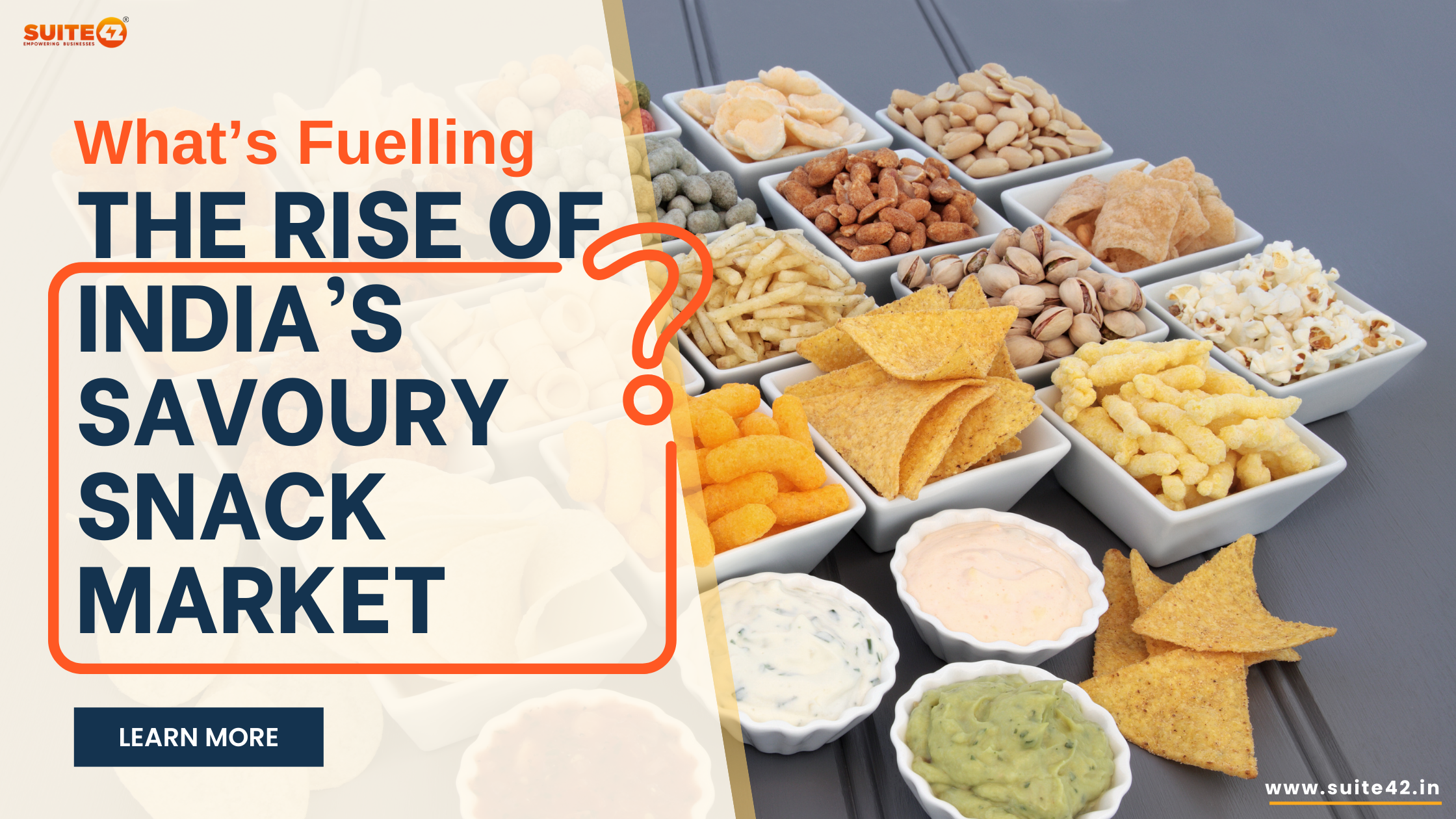
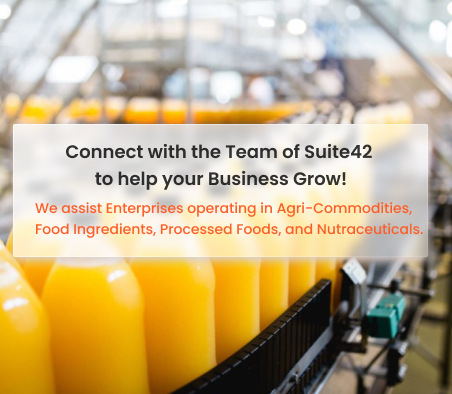
Leave a Reply